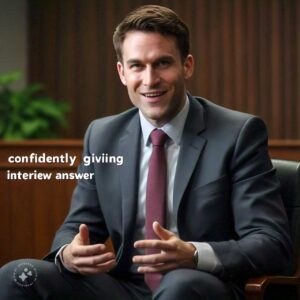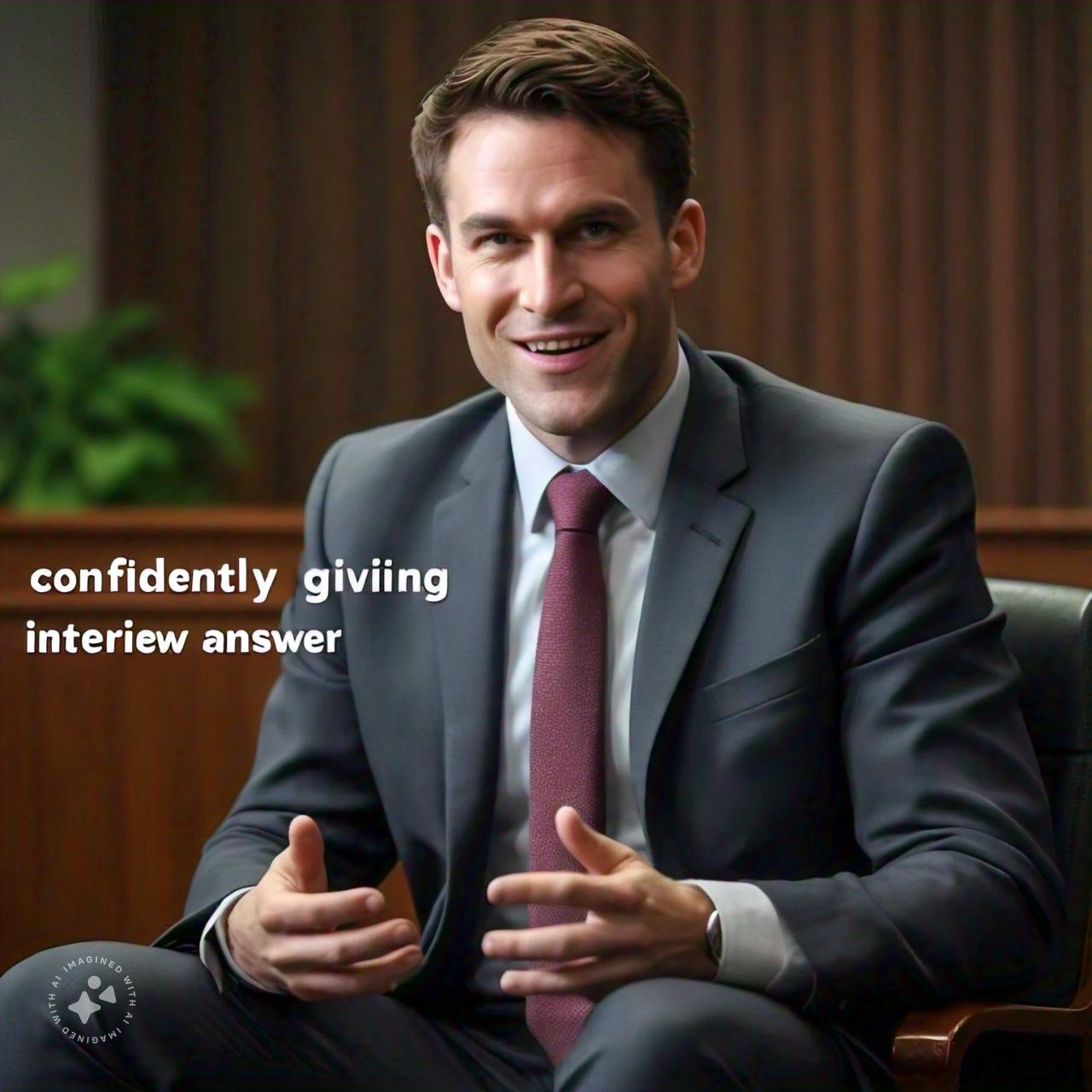A Guide to Answering the Most Critical Interview Question
Every interview is, at its core, an opportunity to prove why you’re the absolute best fit for the job. This may sound simple, but it’s a complex question that speaks to all aspects of who you are: your experience, temperament, education, background, skill set, and interests. It’s also the single most important thing you can focus on in an interview because, whether it’s asked outright or not, the whole purpose of the interview is to answer that very question.
Interviews come in many shapes and forms. They may be short and straightforward or extend across multiple days. Some may feel welcoming and friendly, while others could be challenging or even intimidating. Regardless of the style of the interview, the one constant is that you need to make a convincing case for why you’re the best fit. Here’s how to do just that.

1. Understanding the Question Beneath the Surface
The core of any interview is to determine who is the most qualified and capable of excelling in a specific role. The interviewer wants to know if your unique combination of skills, background, personality, and passion aligns with the demands of the position.
They might not ask, “Why are you the best fit for this role?” directly. Instead, they’ll be gathering information about you and piecing it together to assess your suitability. Recognizing this will allow you to shape every part of your interview preparation, responses, and follow-ups to focus on this central theme.
2. Drawing on Your Experience
Your past experiences are powerful indicators of your future performance. Employers are looking for someone with proven skills who can hit the ground running and add value from day one. When answering questions about your experience, think about:
Relevance: Highlight the parts of your experience that align most closely with the job requirements. If you’re applying for a project management role and have successfully managed multiple high-stakes projects in the past, make sure to emphasize this.
Achievement: Demonstrate tangible results. Did you improve productivity? Increase sales? Achieve an award? Talk about measurable outcomes, and relate them to how you can bring similar success to this organization.
Adaptability: Many jobs today require versatility. Employers value candidates who can handle change, so share examples of how you successfully adapted to new situations or overcame unexpected challenges.
By showing a pattern of success, you’re proving that your experience isn’t just a list of past jobs but a blueprint of your capacity to deliver in the new role.
3. Demonstrating the Right Temperament
Skills are essential, but temperament—the way you approach your work, manage stress, interact with others, and solve problems—is just as crucial. Every role has unique demands on a person’s character, and certain temperamental traits may be especially valued. For instance:
Resilience: If the role is fast-paced and high-pressure, demonstrate that you have the resilience to thrive in such an environment.
Collaboration: Many jobs today are team-oriented. Provide examples of your experience in teamwork, showing that you’re approachable, open-minded, and an effective communicator.
Curiosity and Continuous Learning: Employers appreciate individuals eager to learn and grow. Show that you’re always looking to improve by talking about any self-directed learning or professional development you’ve pursued.
Ultimately, aligning your temperament with the company’s culture and the job’s demands shows you’re not only technically capable but also emotionally and mentally prepared.
4. Leveraging Your Education
Education is about more than just degrees; it’s a foundation for your approach to work and problem-solving. Here’s how to use your education to reinforce why you’re the best fit:
Relevant Knowledge: Emphasize any coursework, certifications, or specializations that directly apply to the job. If you’re applying for a financial analyst role, for example, and you have a degree in finance along with a recent certification in data analysis, make sure the interviewer knows.
Skills Beyond Academics: Education also develops transferable skills like critical thinking, time management, and research abilities. Share examples of how your academic background has helped you in practical, real-world scenarios, especially those related to the job you’re applying for.
Commitment to Growth: Show that your education is part of a larger commitment to personal and professional growth. Discuss any continued learning initiatives you’re part of—whether it’s online courses, workshops, or professional development classes.
Your education doesn’t just show that you have a certain baseline of knowledge; it illustrates that you have a structured approach to learning and improvement.
5. Showing How Your Background and Skill Set Stand Out
Your background and skill set are a powerful combination. This includes both your hard skills (technical abilities and job-specific expertise) and your soft skills (interpersonal skills, communication, and leadership abilities). To make the strongest case:
Align Hard Skills with Job Requirements: Carefully review the job description and match your technical skills to what’s needed. If the job requires advanced Excel skills, data analysis capabilities, or a particular software proficiency, make sure you highlight these.
Highlight Unique Skills: If you have a skill that isn’t common in your field but could be beneficial, don’t hesitate to bring it up. For example, if you’re applying for a marketing position and you have a background in graphic design, you could be uniquely positioned to create more effective visuals.
Emphasize Transferable Skills: Communication, leadership, critical thinking, and time management are valuable in nearly every job. Discuss how you’ve demonstrated these skills in your previous roles and how they’ll contribute to your success in this new role.
Your skill set should paint a picture of someone who not only meets the requirements but brings an added layer of expertise and versatility.
6. Highlighting Your Interest and Passion
Hiring managers often look for candidates who are genuinely interested in the role and motivated by more than just a paycheck. When you’re passionate about the work, you’re more likely to go above and beyond. Here’s how to convey this in an interview:
Demonstrate Knowledge about the Company: Research the company’s mission, values, and recent projects. Show that you’ve done your homework and are excited about being a part of their journey. For example, if the company is heavily focused on sustainability, mention why this resonates with you.
Discuss Your Personal Connection to the Role: Explain why this job, in particular, appeals to you. If you’re applying for a customer service role because you genuinely enjoy helping people, share a relevant personal story to make your enthusiasm authentic.
Link Your Career Goals: If you can show that this position aligns with your long-term goals, you’ll be viewed as a candidate likely to stick around. Talk about how this role will allow you to grow in a way that’s meaningful to you and contributes to the company’s success.
Passion is a crucial intangible factor that can set you apart from other candidates. Employers want someone who is enthusiastic and committed to making a difference.
7. Structuring Your Preparation Around This Core Question
To answer the question of why you’re the best fit in a way that flows naturally, start by preparing specific examples and achievements that cover all these areas. Here’s a way to structure your preparation:
Step 1: Research – Learn as much as possible about the company’s values, projects, and needs. Knowing the company’s culture and mission will allow you to tailor your responses more effectively.
Step 2: Review the Job Description – Break down each requirement and think of specific experiences that showcase your ability to excel in those areas.
Step 3: Practice Your Stories – Prepare stories from your experience that highlight different qualities. Use the STAR method (Situation, Task, Action, Result) to structure these stories so that they’re clear, concise, and compelling.
Step 4: Rehearse Your Response – Practice answering “Why are you the best fit?” as if it were directly asked. Think of it as your guiding answer that shapes everything else you say in the interview.
8. What to Do After the Interview
Once the interview is over, you can continue to reinforce the impression that you’re the best fit:
Send a Thoughtful Thank-You Note: Reiterate your enthusiasm for the role and briefly remind the interviewer of your key strengths.
Reflect on Your Performance: Take notes on what went well and areas where you could improve for future interviews.
Stay Positive and Open to Feedback: If you get the job, great! If not, ask for feedback to better understand how you can improve your approach.
Conclusion
Answering “Why are you the absolute best fit for this role?” isn’t about simply listing your qualifications. It’s about weaving together your experience, temperament, education, background, skill set, and interests into a cohesive story that demonstrates your unique value. By focusing on this question as the heart of your interview, you can better organize your preparation, stay on message throughout the interview, and leave a lasting impression that you’re the right person for the job.
With thoughtful preparation, storytelling, and the right attitude, you’ll be well on your way to proving that you’re exactly what the organization needs.



